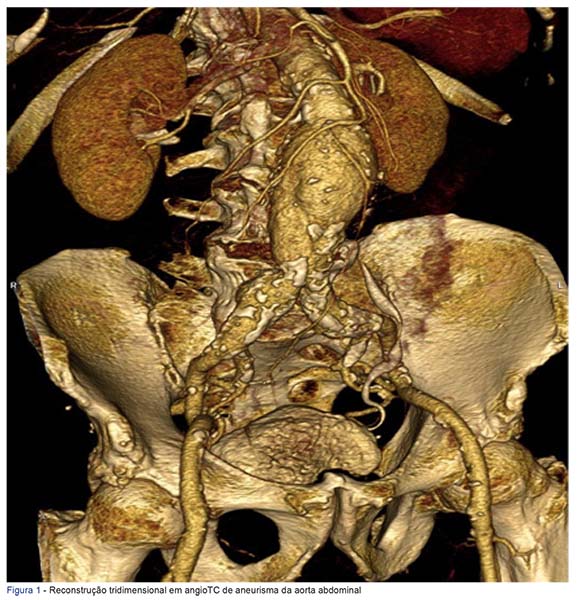SOCIAL MEDIA
Portuguese Medical Association's Scientific Journal

Introduction: To evaluate the results of the abdominal aortic aneurism endovascular treatment (EVAR), percutaneously and with local anesthesia, according to the concept of one day surgery.
Material and Methods: Unicentric, retrospective analysis of patients with aorto-iliac aneurysmal disease, consecutively treated by EVAR with percutaneous access trough the Preclose technique (pEVAR), according to the outpatient criteria, with one overnight stay in the hospital. The technical success, exclusion of the aneurysmal sac, endoleak, re-intervention and mortality were evaluated.
Results: Twenty consecutive patients (all male; mean age 74.65 years) were treated by EVAR with percutaneous access and local anesthesia, from which 95% (19) presented with abdominal aortic aneurysm and 5% (1) common iliac aneurysm. All implants were sucessfully performed, with an initial endoleak rate of 10% (2), determined by one type 1a endoleak successfully corrected intraoperatively and one type 2a endoleak diagnosed in the first imaging control, which sealed spontaneously on the second control. Initial technical success for percutaneous closure was 97.5%, with one case reported of femoral pseudo-aneurism, posteriorly treated by percutaneous thrombin injection. Median length of stay was one day [1-10], with a mean follow-up of 11.4 months [1-36]. Both the reintervention and mortality rate are 0% for the selected period.
Conclusion: Our one day surgery model for the outpatient treatment of abdominal aortic aneurysm by the pEVAR technique is innovative, safe and effective, as long as the selection criteria are respected.
Keywords: Ambulatory Surgical Procedures; Aortic Aneurysm, Abdominal; Blood Vessel Prosthesis Implantation; Endovascular Procedures.